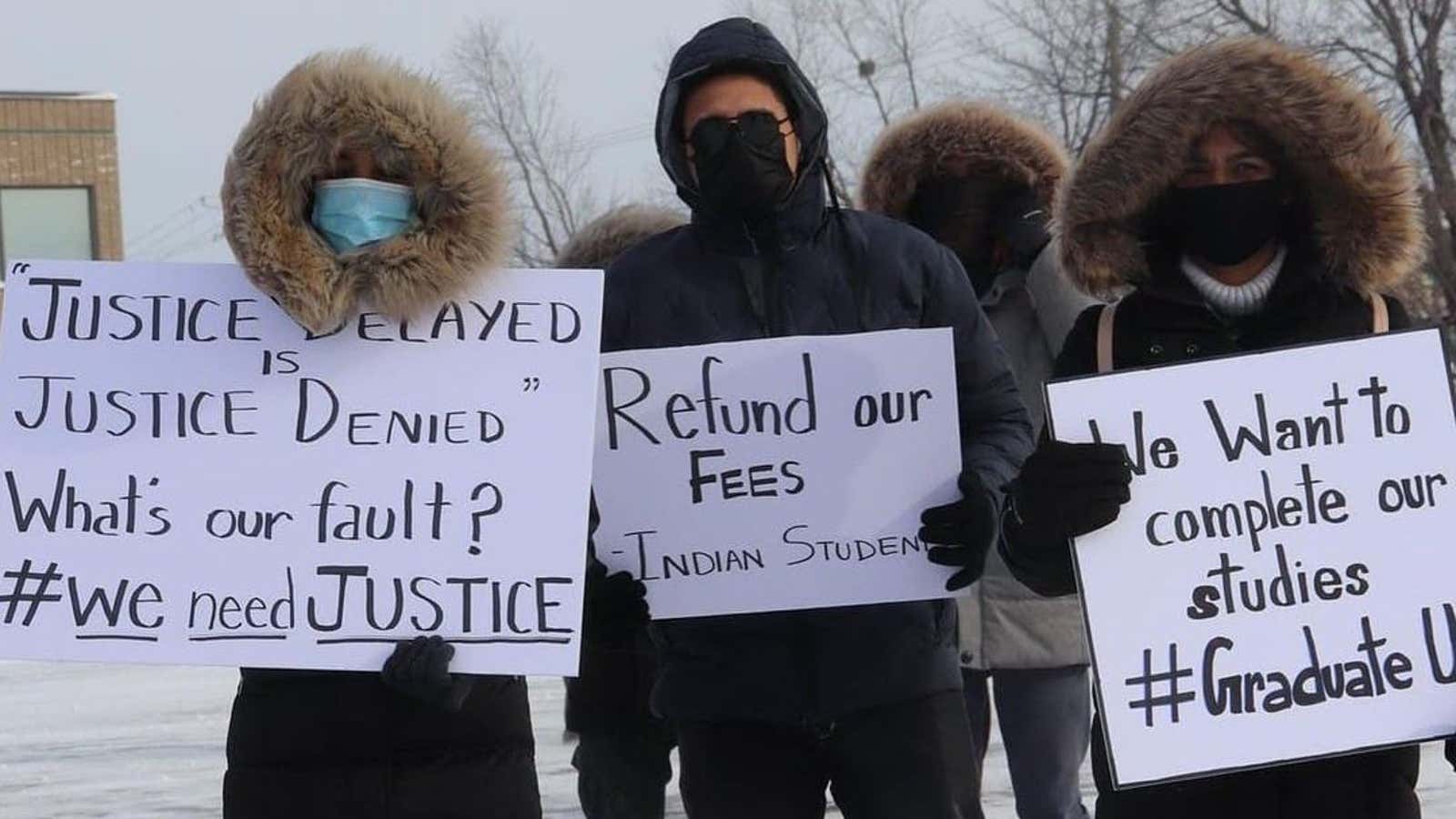Three Canadian universities have over 2,000 Indian students on edge.
Members of the Montreal Youth-Student Organization’ (MYSO) held a car rally yesterday (Feb. 17) from Gurudwara Sahib Guru Nanak Darbar to the ministry of education in Montreal, Quebec. On Jan. 29, many of them had demonstrated outside the same Gurudwara. On Feb. 13, there were protests in British Columbia and Brampton. Separately, a protest was held in the Indian city of Chandigarh on Feb. 10, too.
For months now, students enrolled at Collège de comptabilité et de secrétariat du Québec (CCSQ), College de I’Estrie (CDE) and M College, have felt exploited. Right before their extended winter break from Nov. 30, 2021, to Jan. 10, 2022, began, students were made to pay their fees on an accelerated timeline or risk suspension or expulsion.
Come January, the institutes never reopened.
In the past two months, the students have had little clarity on how to complete their education—or at least get a refund for the hefty 28,000-30,000 Canadian dollars ($22,051 to $23,626) fee they paid for a two-year course. An outsized share of the affected people hails from India. Another 700 taking online classes were also hit.
What happened to the Montreal colleges?
Nisha Rani, a student of M College, told the Quint that, in January, students suddenly received an email from their university administration, saying the college is under CCAA protection. “We were told the college is at the edge of bankruptcy, and our refund is at risk,” she said.
The Companies’ Creditors Arrangement Act (CCAA) is a federal Act that tries to protect businesses from bankruptcy by allowing creditors to receive some payment equal to the amounts owed to them by the company. M College, CDE, and CCSQ have all requested help, a Quebec superior court filing shows. The unpaid tuition fees and refund claims from 633 students are to the tune of $6.4 million.
What happens to the Indian students’ degrees now?
As the insolvency case proceeds, solutions will be implemented to help those students, who were to graduate in January or February, conclude their studies. However, the rest will be placed on an indefinite pause.
Currently, withdrawing is not an attractive option because, due to the CCAA filing, students will have to forego a full refund.
Those who insist aren’t able to get their paperwork in order. For instance, Sukhmanpreet Singh, a CCSQ student, has not been able to get proof of his medical insurance or a copy of his transcript from the college administration.
Indian students worry about education, jobs, and immigration
For Indian students at Canadian universities, who have braved long flight bans, visa rejections, and online classes during the pandemic, the monetary damage is only the beginning of their woes.
Seven in ten of them were in the last semester of college. They were looking forward to completing their degrees and bagging jobs soon. For those doing part-time jobs, the break means they can no longer work either.
For some at the tail-end of their courses, their visas are due to expire in the next few months, adding immigration to their already long list of troubles.
The fear is that the focus on debts and creditors will overshadow students’ interests.
If the situation isn’t reined in, prospective Indian students could get spooked over choosing Canada.
